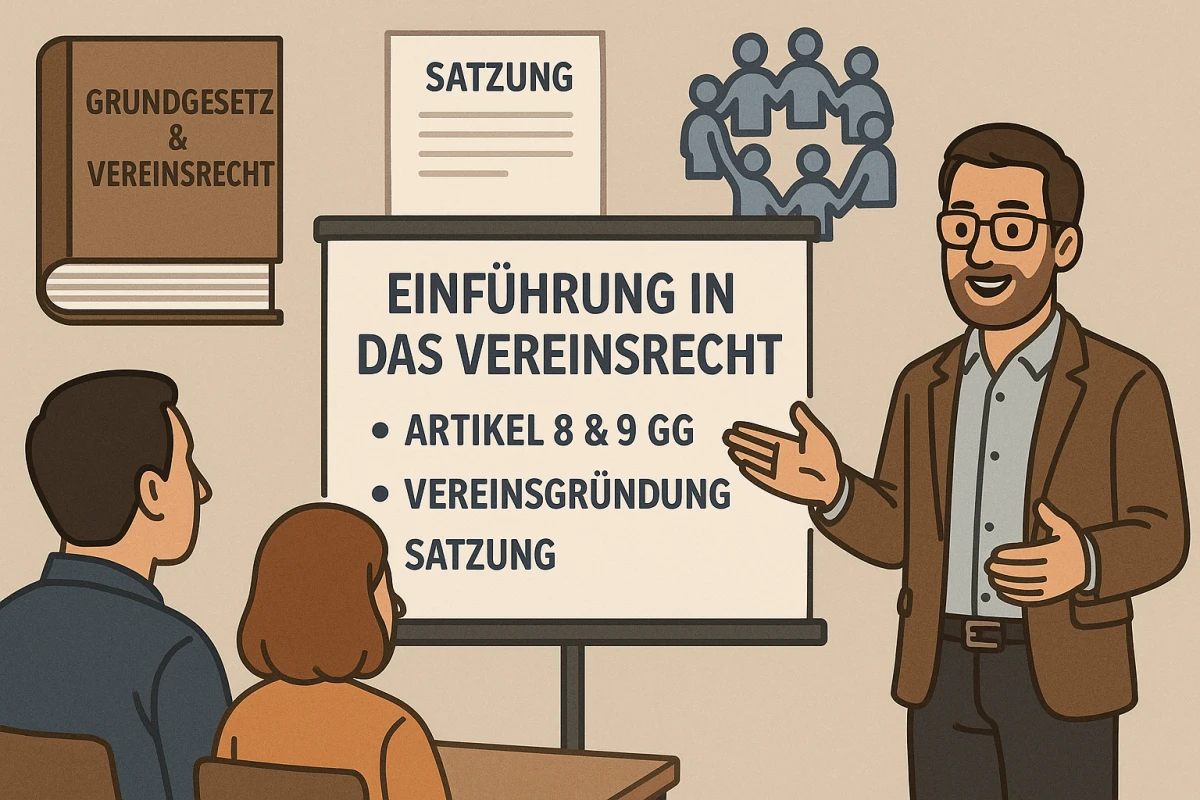Club Management Course part 4
In the fourth part of the training, we delved deeper into the topics of statutes and general meetings – the cornerstones of association law.

In his seminar, lecturer Christian Böttger introduced us to the basic principles of association law and statutes. I learned that the idea of an association is already enshrined in our Basic Law. Specifically, this idea is based on Article 8 of the Basic Law, which deals with freedom of assembly. Furthermore, Article 9, Paragraph 1 of the Basic Law states that all Germans have the right to form associations and societies. I find this formulation critical: German citizenship is a prerequisite for founding an association.
Fortunately, there is still the Association Act (Vereinsgesetz), which regulates how people without German citizenship can establish associations. This doesn't require much:
- The association needs a name and statutes.
- At least seven founding members who are of legal age.
- A single director.
The statutes have an exceptional significance for an association. They are its constitution and as thus holy. Everything concerning the association's day-to-day operations can and should be regulated in them. A few aspects are crucial, others are recommended:
- The purpose of the association must be non-profit and have no commercial intentions.
- The minimum legal requirements, such as name, registered office, etc., must be met.
- Much more can be included in the statutes, but this should be carefully considered.
- The Data Protection Regulation has no place in the statutes; only a reference to its existence.
- The fact that fees exist must be mentioned, but ideally not their amount and structure.
- Everything stated in the statutes can only be changed by a resolution of the general meeting.
Along with the board of directors, the general meeting is the only legally prescribed body of an association. It has all decision-making and management powers, unless otherwise regulated in the statutes. A large association with many members that doesn't have appropriate statutes can cripple itself.
Conclusion
The insight into the basic principles of the association allows me, as the head of the table tennis department, to finally understand what is regulated at NTSV and how it all works together. This knowledge would have been helpful at my first departmental annual general meeting.
- Did I call the meeting properly, and how do I determine that?
- Am I quarrelable or not?
- How do I hold a vote? Secret or public, and when, or more precisely, how do I determine that?
- And many small questions become relevant when responsibility is shared. Otherwise, it's easy to say, "Leave it, it'll be fine."
I managed the meeting without the necessary knowledge, but I did it more or less poorly. In addition, the NTSV's statutes are incomplete and inconsistent in some respects. This makes reading the association's statutes and departmental regulations difficult, especially when committed members persistently raise their voices, specifically targeting these points.
Thus, assuming the responsibility of departmental leadership at NTSV remains an exciting challenge. I can be sure of the support of management, which is why this is not an excuse. On the other hand, the office needs to improve this and provide a better basis for future department heads.